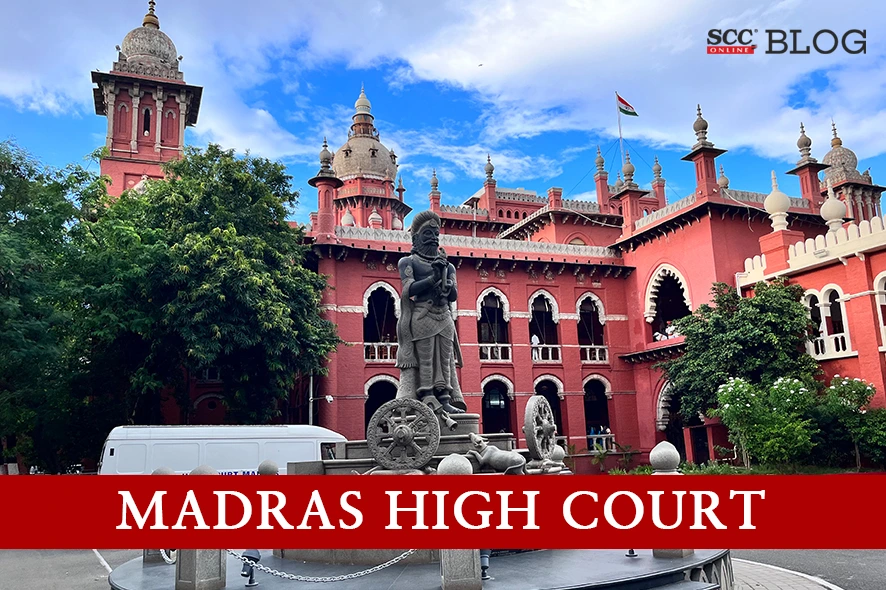Madras High Court: In a petition concerning the relocation of Thengumarahada Village in the Mudumalai Tiger Reserve, the division bench of N. Sathish Kumar and D. Bharatha Chakravarthy*, JJ. has directed the Union provide funds by releasing the same to the National Tiger Conservation Authority, who in turn will release it to the Principal Chief Conservator of Forests, State of Tamil Nadu so that the same can be immediately disbursed to the villagers and the relocation be carried out. Further, it directed that the relocation has to be carried out within a period of one month.
The Court took note of the previous order dated 16-09-2023 and 11-10-2022, wherein the Court specifically ordered relocation of Thengumarahada Village in the Mudumalai Tiger Reserve, but due to paucity of funds the same was not complied with.
Issue:
Whether paucity of funds can be validly pressed into service for non-compliance of the earlier directions of this Court and whether positive directions can be issued to utilise the National Compensatory Afforestation Fund Management and Planning Authority (CAMPA) fund for the purpose?
Background:
Mudumalai Tiger Reserve and Sathyamangalam Tiger Reserve is a forest link between Western and Eastern Ghats and is in the junction of the three States of Kerala, Karnataka and Tamil Nadu, not only these Tigers Reserve are known not only for their Tiger population but are home for their rich Flora and Fauna. Sathyamangalam apart from being Tiger Reserve is also declared as an ecologically sensitive area by the Government of India under the Environment Protection Act 1985.
Thengumarahada settlement is located within the eastern boundary of the Mudumalai Tiger Reserve. It is located at the confluence of the rich biodiversity regions of the Eastern Ghats and the Western Ghats and the location places and important role of the connecting corridor for most of the long ranging wild animals in the area which is crucial in ensuring gene flow between populations.
The village was formed through State Action originally by a Government Order dated 05-08-1948 whereby, 100 acres of land from the Nilgiris Eastern Slope was leased to Thengumarahada Vivasaya Corporationto do collective farming in the said land. Initially the lease was granted for five years with a provision for renewal and allotment of initial lands. Subsequently, vide a Government Order dated 24-08-1951, the Government ordered an extent of 500 acres of forest land to be leased to the Thengumarahada Vivasaya Corporation and the lease period was also extended to another five years. Vide Government Order dated 05-01-1961 it was ordered that the 500 acres of land already leased to the society be assigned to it on condition that it will be open for the Government to resume the land in case of failure to use the land.
On 25-08-2011 the Conservator of Forests, Coimbatore had proposed to the Principal Chief Conservator of Forests, Chennai for taking back the land allotted to the Thengumarahada Co-operative Society in consideration with the Government.
Analysis:
Considering the huge man- animal conflict, which is now endangering several species and plaguing the bioscope of an extremely pristine forest with great biodiversity, the Court opined that the village has to be relocated in total.
The Court took note of the report submitted by Sub-Collector, Conoor, Nilgiris District, wherein it was stated that there are 497 families (including 20 tribal families) residing in Thengumarahada Village. Further, it noted that after the direction of this Court, a stake holder’s meeting was conducted with the villagers of Thengumarahada on 06-03-2022. After detailed discussions the people have agreed to relocate, provided adequate compensation is paid to them. Therefore, a proposal was drawn up with a budgetary outlay of Rs. 74,55,00,000/- for relocation of the 497 families at Rs. 15.00 lakhs per family as per NTCA norms.
The Court noted that the expenses of the Tiger Conservation Authority incurred in discharge of its functions under the chapter has to be made from the Tiger Conservation Authority Fund and it is for the Central Government to allocate such fund to the National Tiger Conservation Authority. However, in this case, the National Tiger Conservation Authority pleads that no fund whatsoever has been allocated to it and it is dependent only on the National and State CAMPA funds.
The Court took note of B.L. Wadehra (Dr) v. Union of India, (1996) 2 SCC 594 , wherein it was held that “the non-availability of funds, inadequacy or inefficiency of the staff, insufficiency of machinery etc. cannot be pleaded as grounds for non-performance of their statutory obligations”.
Thus, the Court said that when a primordial statutory duty is cast upon the Union Government, especially when the same is pursuant to the Directive Principles of State Policy, non-availability of funds cannot be an excuse. The Compensatory Afforestation Fund itself was constituted by an Act of Parliament. Therefore, the funds available in the National CAMPA Authority can be used for this purpose.
After taking note of Rule 5(2)(h) of the Compensatory Afforestation Rules, 2008, the Court said that relocation of villagers/human settlement is expressly mentioned as the purpose for which, the State CAMPA Fund can be utilised. Merely because the Thengumarahada Village is in Tamil Nadu and merely because the State of Tamil Nadu receives only negligible or minimum share in the CAMPA fund on account of its laudable policies of not parting with any of the forest lands, the avowed and noble purpose of relocating the Thengumarahada village cannot suffer.
[Manoj Immanuel v Union of India, W.M.P.(MD)No.1962 of 2022, Order dated 08-08-2023]
*Order Authored by: Justice D. Bharatha Chakravarthy






